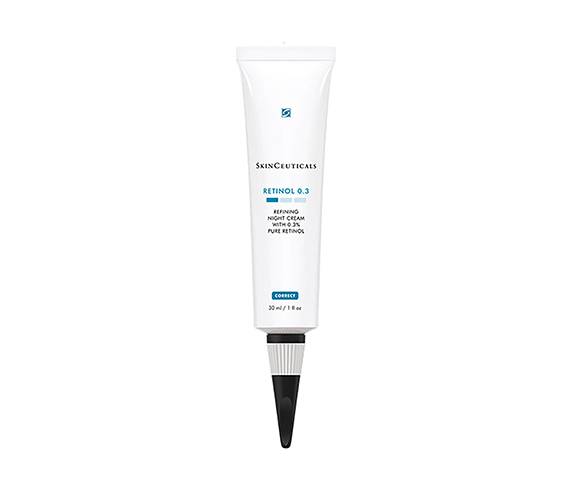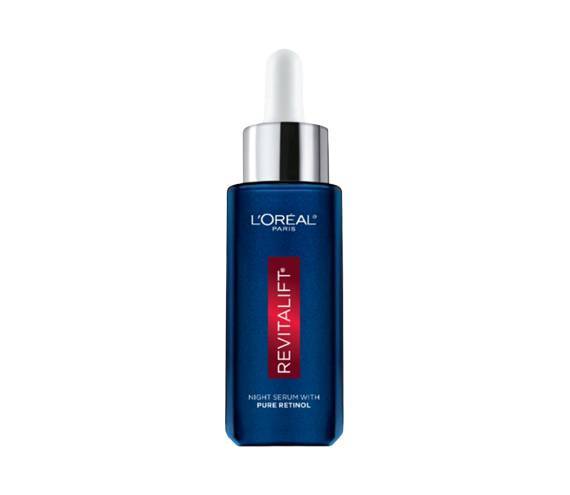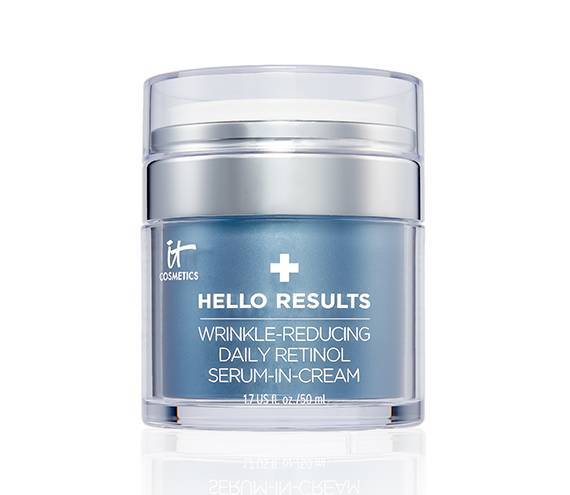A Beginner’s Guide to Using Retinol
January 06, 2021Retinol is a powerful skin-care ingredient that helps target a wide range of skin-care concerns, from signs of aging to acne. If you’ve never used retinol before, it’s important to know that your skin needs to become “retinized” by working your way up from low concentrations to higher ones. This will help minimize the chance of dryness and irritation. Keep reading for your ultimate guide to retinol, including what it is, its benefits, how to use it and our favorite products that contain it.
What Is Retinol?
Retinol is a form of vitamin A or, more specifically, a type of retinoid which is derived from vitamin A. Vitamin A is essential to cell division, meaning it helps move along new cell growth for regenerative purposes. Retinol is one of the most active forms of vitamin A.
How Does Retinol Work?
Retinol has the inherent capability to increase epidermal thickness, or thickness of the topmost layer of your skin. It targets stress-induced oxidative damage that can cause the formation of wrinkles and sagging skin, reversing both on the surface level in order to help you maintain a youthful look.
Additionally, retinol can deliver increased collagen production and improved tone and texture, says Dr. Ted Lain, board-certified dermatologist and Skincare.com consultant. “Acne will also respond favorably to retinol use, as will acne scars,” he says.
Who Should Use Retinol?
"At a very low dose, anyone can benefit from retinol, with the benefits appearing slowly over time with continued use,” Dr. Lain says. As you use retinol, however, your skin slowly begins to build an immunity, requiring an increase in the concentration of the ingredient. Keep in mind, however, that this increase can lead to irritation and dryness on sensitive skin types.
“Accelerating the benefits requires higher concentrations, which could cause quite a bit of side effects that may be intolerable for those with very sensitive skin,” Dr. Lain warns. As such, sensitive skin types should approach retinol with caution.
If you’re a beginner and your skin has yet to be retinized, you’ll want to start off with a lower concentration and frequency, and slowly work your way up to build your skin’s tolerance to the powerful ingredient. Use the product twice a week to start, and gradually increase the frequency to every other night, and finally once a night, as tolerated. Keep in mind, retinol is photosensitive and breaks down in UV light, so it should only be applied at night. Retinol also makes skin sensitive to sunlight, so it’s extremely important to layer on that broad-spectrum sunscreen each and every morning, rain or shine, and take other sun protection measures.
What Are the Side Effects of Retinol?
As much as we love this multi-tasking ingredient, it does have a few side effects. According to Dr. Lain, these can include slight redness and dryness, which should decrease as your skin starts to get used to the ingredient. You can help curb some of the dryness by following retinol with a rich cream that doubles down on hydration. If you do notice excessive dryness, irritation or skin peeling, stop using retinol and talk to your dermatologist before you continue.
There are also a few instances where you should avoid retinol products, especially if you have sensitive skin. Avoid using retinol creams prior to hair removal, such as waxing. Retinol is also off limits prior to a laser treatment, such as laser hair removal. When in doubt, talk to your dermatologist for clarification.
When Should I Start Using Retinol?
According to Dr. Lain, you can start using retinol if you notice acne, fine lines or wrinkles on your complexion. “Retinol can be started for adult acne,” he says. Dr. Lain also notes the importance of keeping up with your retinol usage, even if your skin is clear. “Retinol can help address all stages of the acne blemish, therefore its use should not be halted when the acne resolves.”
Our Top Retinol Product Picks to Try Now
SkinCeuticals Retinol 0.3
SkinCeuticals Retinol 0.3 is great for beginners because it has a low concentration of retinol. Apply the cream once daily in the evening to help revitalize the skin and diminish signs of aging. It’s recommended for skin with photodamage, imperfections and congested pores.

L’Oréal Paris Revitalift Retinol Night Serum
If you’re looking for a drugstore option, this one is formulated with 0.3% pure retinol to help reduce the appearance of fine lines and deep wrinkles. Over time, your skin will appear smoother, brighter and more even in tone.

IT Cosmetics Hello Results Daily Retinol Serum-in-Cream
This retinol serum-meets-cream combines the powerful anti-aging benefits of retinol with the soothing benefits of a moisturizing cream. It’s great to use on all skin types, including sensitive, and works to improve the look of fine lines, dark spots and loss of firmness.

Design: Hannah Packer
Read More:
Sensitive Skin? Try Encapsulated Retinol
Affordable Retinol Products Exist! Here Are 7 We Love
Why You Need Vitamin C and Retinol in Your Anti-Aging Routine